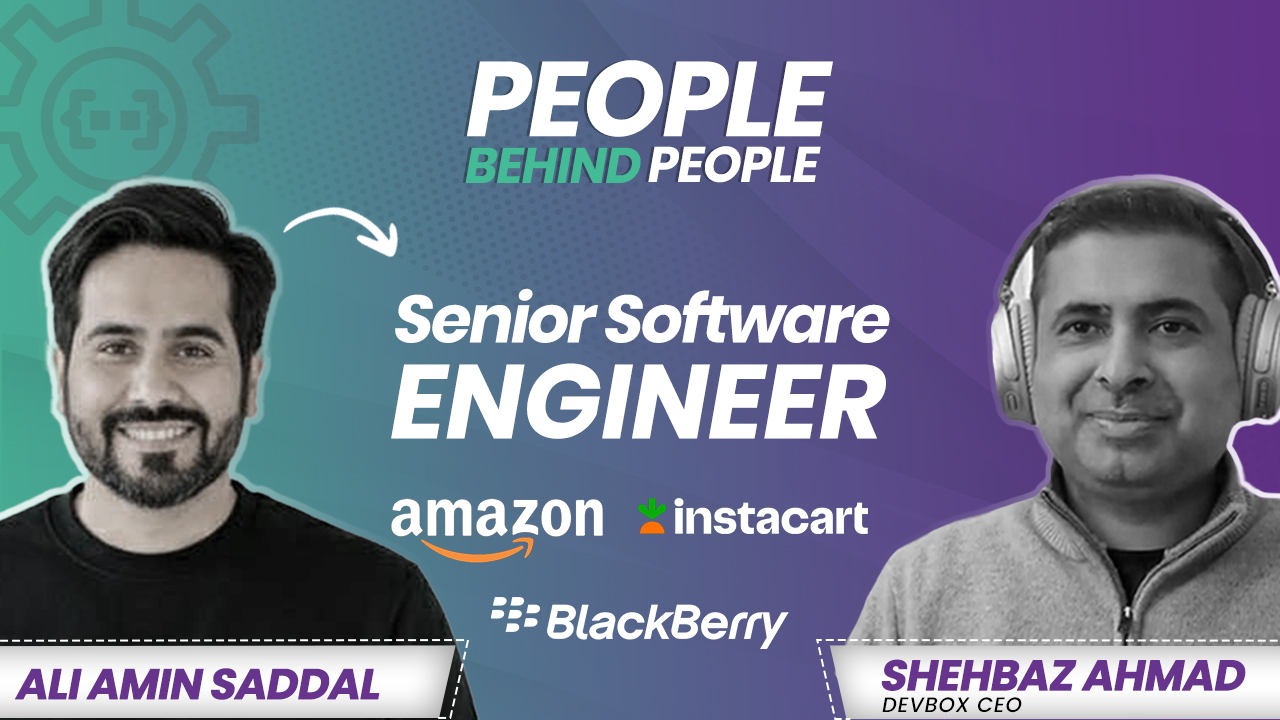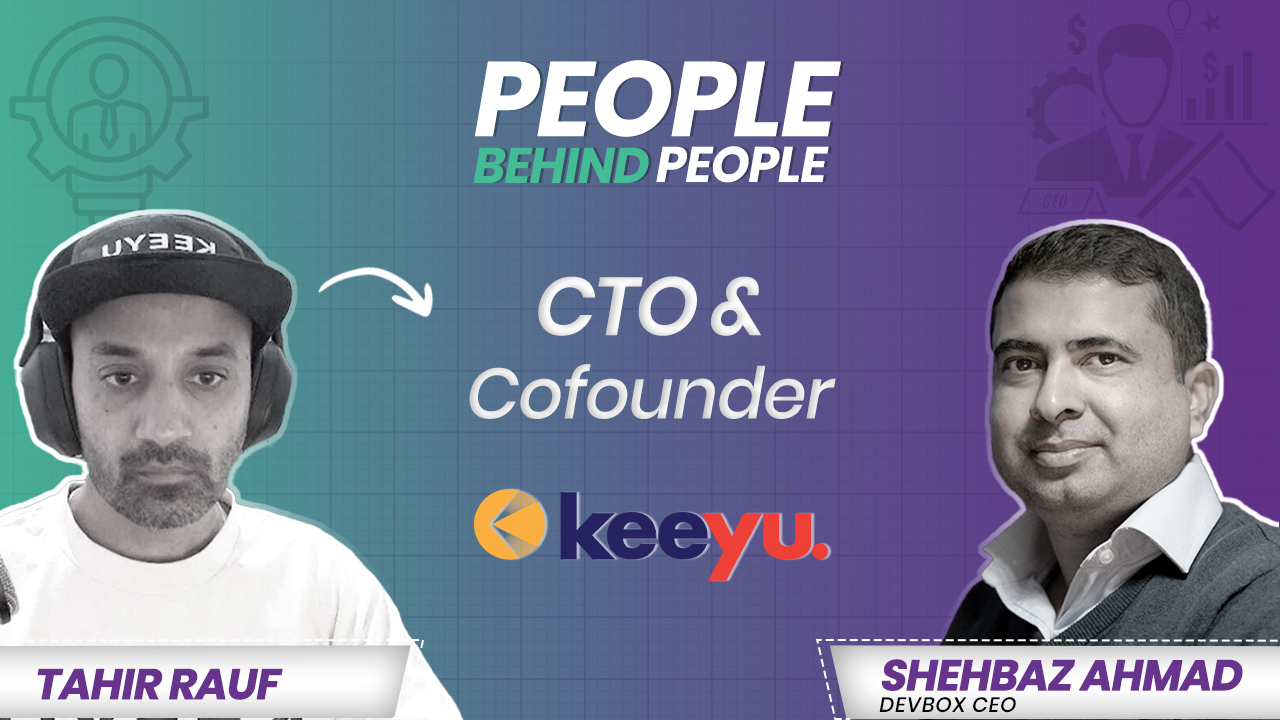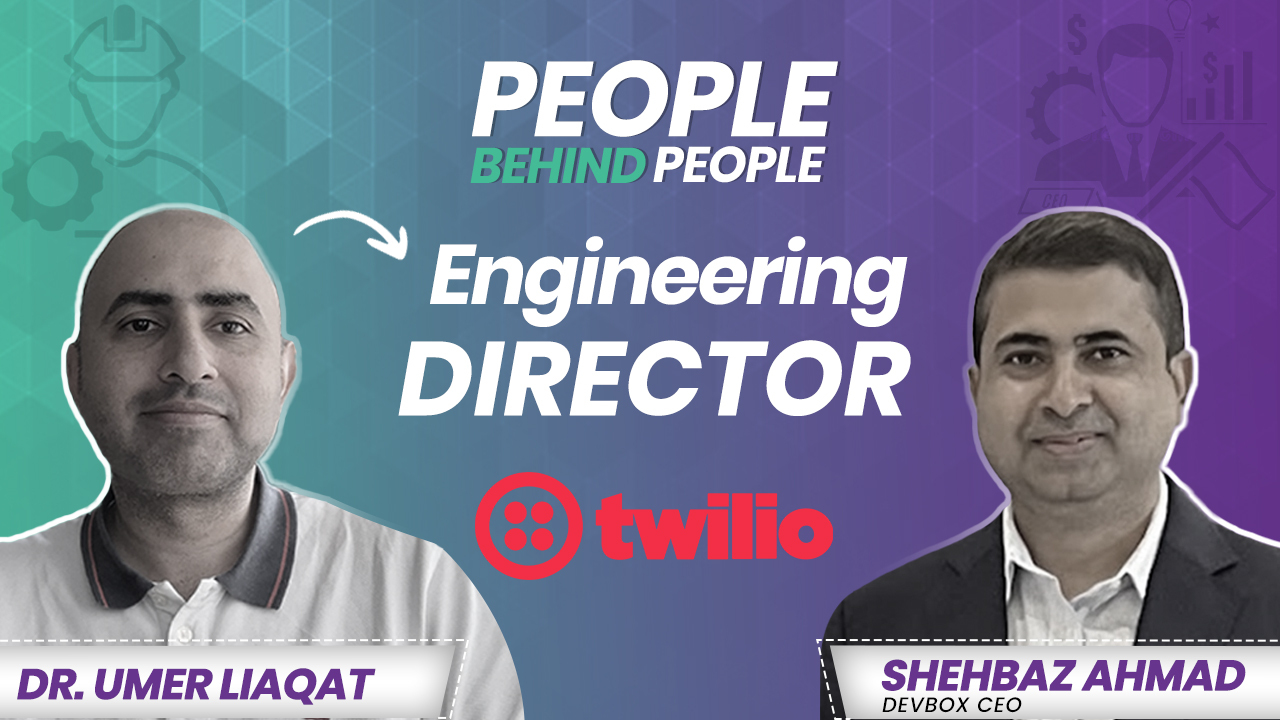In this episode of People Behind People, Devbox CEO Shehbaz Ahmad speaks with Ali Amin Saddal, a Senior Software Engineer based in Mississauga, Canada. Ali has built backend systems for Amazon, Instacart, and Blackberry. But his journey began in Sialkot, driven by curiosity, resilience, and a desire to understand technology beyond the surface.
This conversation explores engineering maturity, global-scale thinking, and the habits that help software engineers grow beyond code.
A Curious Childhood That Led to Computer Science
Ali’s fascination with technology started in the late 90s, long before he formally studied computer science. What began with games, DOS commands, and early internet experiments soon sparked a deeper question:
“I realised I was just using tools, not understanding them. That’s when programming clicked.”
Despite initial family hesitation, a last-minute opportunity at Punjab University’s computer science program set the stage for Ali’s future.
Teachers Who Build Engineers, Not Just Students
Ali credits his early success to the educators who shaped his thinking:
“A great teacher meets you where you are, and lifts you from there.”
Their influence taught him to think deeply and approach engineering with clarity and discipline.
Engineering Through Exploration: OS Projects, Urdu Editors & Systems Work
University for Ali was never just about passing courses. It was about pushing boundaries.
He and his peers explored:
- Creating a complete Urdu editor
- Building key parts of a 16-bit operating system
- Implementing file systems, SQL-like engines, and custom interpreters
- Writing low-level utilities and experimenting with bootloaders
This hands-on culture built the foundation for his engineering maturity.
Canada & the Transition to Product-Based Engineering
After multiple attempts, Ali eventually moved to Canada for his Master’s and later joined Blackberry (RIM). This was where he first witnessed engineering at true scale.
He highlights the mindset shift between Pakistan’s project-based environment and global product companies:
“In product engineering, what you build becomes your responsibility forever.”
This rigor shaped Ali’s approach as he moved to Amazon and Instacart.
What ‘Done’ Means in Global Engineering
Ali believes that coding is only 10% of engineering. A feature is not complete until:
- It is observable
- It has alerts and dashboards
- It has rollback options
- It has a defined blast-radius
- Other engineers can debug it without him
“Your system should tell you it’s broken before anyone else does.”
This mindset separates local engineering from global engineering.
Debugging Under Pressure: Ali’s Approach
His debugging strategy is methodical:
- Collect evidence
- Reproduce or model the issue
- Document everything
- Break the system into parts
- Delegate intelligently
- Communicate clearly
- Time-box investigation
“Seniority isn’t solving everything yourself. It’s dividing work, leading calmly, and communicating well.”
Clean Code in an AI-Driven Future
While Ali values clean code, he emphasises practicality:
- Write testable code
- Keep functions simple
- Avoid cleverness for the sake of cleverness
- Treat languages as tools, not identity
“AI can write code. Your value is reasoning and systems understanding.”
Communication: The Underrated Skill That Accelerates Careers
Ali stresses that engineering growth is powered by communication:
- Clear standups
- Conveying blockers
- Writing design documents
- Presenting work like a product
- Simplifying complex ideas
- Selling your work in interviews
“Your manager doesn’t count loops. They care whether the feature works.”
Mentorship & Giving Back
Coming from a family of teachers, Ali naturally gravitates toward mentorship. Whether guiding young engineers or teaching voluntarily, he believes in multiplying impact.
“Teaching is removing blockers in someone’s thinking, not giving answers.”
Advice for Pakistani Engineers Pursuing Global Roles
Ali’s key recommendations:
- Build Ownership – Understand your feature end-to-end.
2. Strengthen Fundamentals – Focus on concepts, not frameworks.
3. Prepare intentionally for interviews – Use LeetCode, Blind-150, real system design reasoning.
4. Practice communication – It’s a career multiplier.
5. Stay Curious – Ask “why,” not just “how.”
6. Learn time-boxing – Know your limits, then ask for help.
What Pakistani Universities Can Improve
Ali suggests practical enhancements:
- Teach core concepts through C or Go
- Stop binding students to specific stacks
- Introduce communication & job-readiness training
- Teach documentation and design-writing
- Encourage product-style presentations
- Bring industry mentors into classrooms
Pakistan has talent, it needs better structure.
Closing Thoughts
Ali’s journey from Sialkot to Amazon is a testament to curiosity, discipline, and consistent improvement. His story highlights the mindset that transforms engineers into leaders:
- Curiosity
- Ownership
- Clarity
- Consistency
- Community
These are the principles that shape world-class engineers, regardless of where they start.


